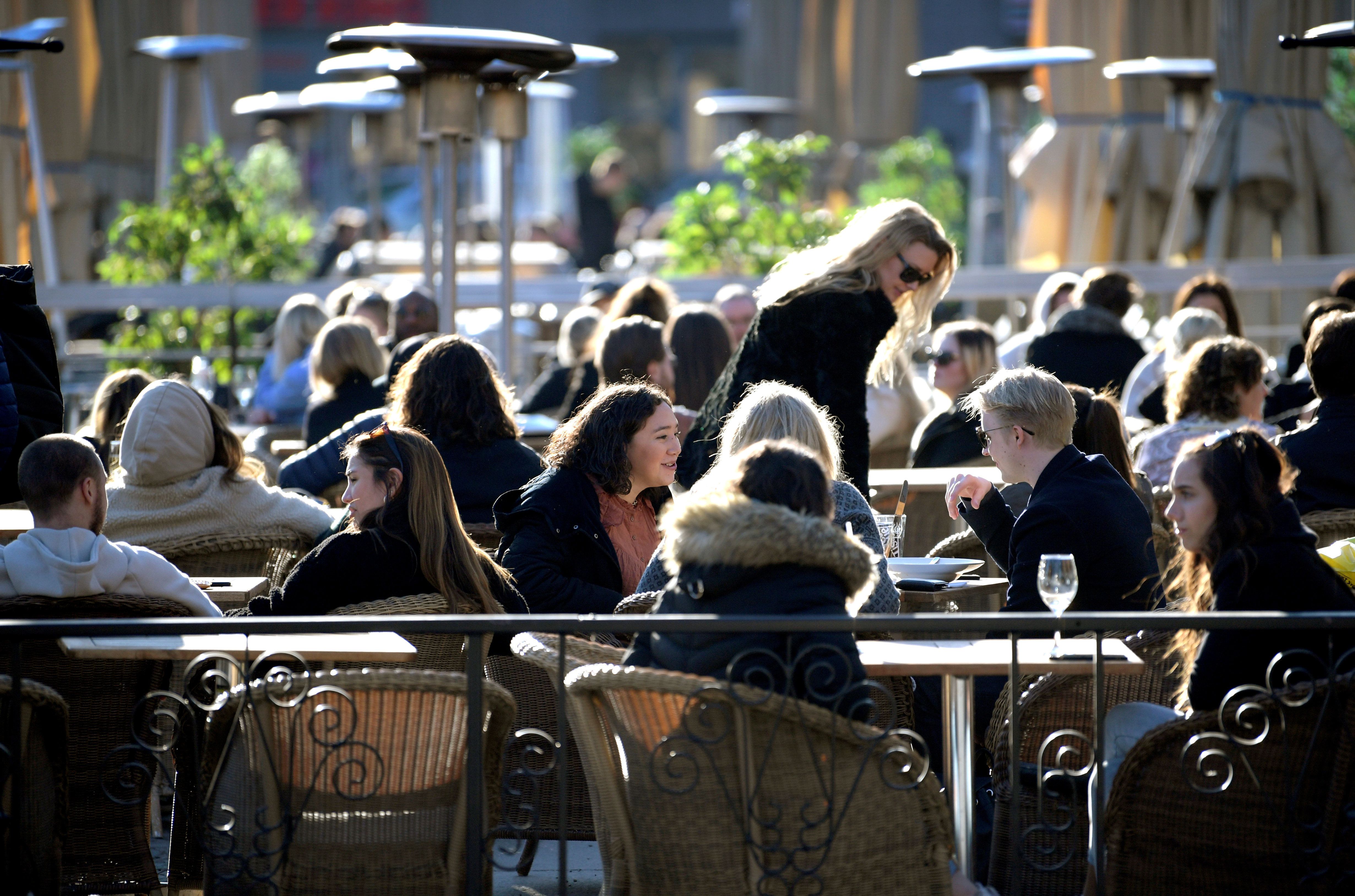People around the world are now comparing the coronavirus response of their own governments to those in other places, and the controversial strategy adopted in Sweden has drawn particular attention. What exactly is the "Sweden Model" for managing COVID-19, and would it work in other countries?
What is the "Sweden Model?" It's a coronavirus management strategy led by Anders Tegnell, state epidemiologist at Sweden's National Institute of Health. Sweden's government has closed universities and banned large public gatherings, but it has not ordered citizens to stay home or wear masks. Nor has it closed schools, gyms, bars or restaurants. The government has offered advice but hasn't imposed a lockdown.
The idea, according to Tegnell, is that a virus transmitted easily by people who show no symptoms of illness can't be contained by lockdowns and contact tracing. Only immunity can protect the broader population. Since there's no vaccine on the horizon, it's best to allow healthy people to become infected and develop natural immunity. He acknowledges that special care must be taken to protect those the virus is most likely to kill: the elderly and those with underlying health conditions.
You might want it for your country.
COVID-19 is not the only killer at large. Mass lockdowns have dire health consequences of their own. Research shows that joblessness, poverty, and isolation kill large numbers of people in every country in the world.
Many people don't trust government. They believe that it's dangerous and irresponsible for government bureaucrats to issue orders that impose joblessness, poverty, and isolation on their citizens. In some countries, people don't think government should have that much power, particularly on the subject of a virus even scientists are struggling to understand. In those places, many will ignore government orders or use their democratic power to force changes to them.
Some countries have health care systems that can manage a near-term surge of infections. If Tegnell and others are right that more near-term infections now move a society more quickly toward "herd immunity," which means fewer deaths later, then government-ordered lockdowns inflict economic and emotional misery on people without reducing the total number of deaths.
And now a few arguments for why this might not be a good model for other countries…
Few countries have political systems as centralized as Sweden's. Most central governments don't have the power to adopt a single approach to fighting the coronavirus. In nations where local officials adopt different strategies, the effectiveness of any single plan, including Sweden's, is sharply reduced.
Swedes are healthier than people in most other countries. It's easier for young Swedes to survive infection, because they have fewer chronic health problems — like obesity and diabetes — than people in many other countries. Their health-care system is better able to absorb a sudden surge in serious illness. And there's relatively little inequality in Sweden in access to quality health care.
Swedes are less exposed to the disease. Sweden has one of the highest work-from-home rates in the world. It also has relatively low population density outside of Stockholm, and is a place where social distancing is more culturally accepted.
Finally, many Swedish scientists say that their government's approach is a bad idea even for Sweden. We can't yet evaluate the long-term effectiveness of Sweden's strategy, but we do know that it has a much higher current coronavirus death rate than its Nordic neighbors with stricter lockdowns. Sweden's death rate is 28.88 per 100,000 people. Denmark stands at just 8.73, Finland is at 4.57, and Norway is at 4.06.
Strong arguments on both sides. What do you think?
More For You
For many in Iran, it’s a waiting game for how long Ayatollah Khamenei has left to live.
Most Popular
In a 30-minute call on Thursday, President Donald Trump reportedly told Ukrainian President Volodymyr Zelensky he wants to end the war with Russia as soon as possible — aiming for a deal by summer, but ideally within weeks.
Former British ambassador to the U.S. Peter Mandelson leaves his residence after he was released following his arrest by London police on Monday on suspicion of misconduct in public office, following the release of U.S. Justice Department files linked to the late financier and convicted sex offender Jeffrey Epstein, in London, Britain, February 26, 2026.
The ghost of Jeffrey Epstein continues to haunt the world.
Think you know what's going on around the world? Here's your chance to prove it.
